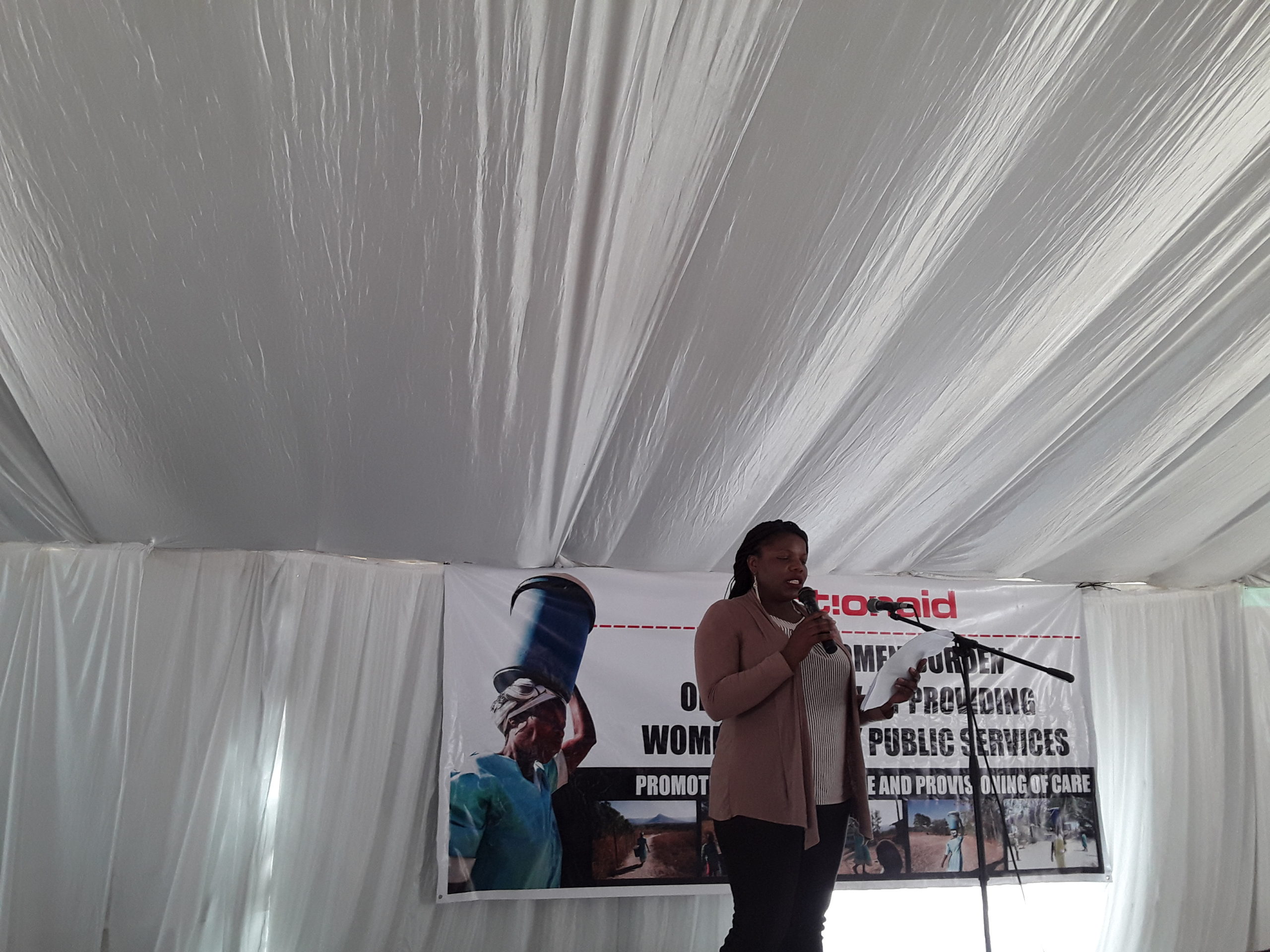During commemoration of Workers Day 2019, ActionAid Zimbabwe, which is part of a global ActionAid International (AAI) family, launched a One Global Campaign on 1 May 2019 with calls on the government to provide women friendly public services, care facilities to reduce the burden of unpaid care work of women and a plea to end gender-based violence at the work place.
ActionAid said it recognises that there is a disproportionate burden of unpaid care work which undermines women’s socio- economic and deprives them of their rights to participate in political spheres of their life. The inadequate and privatisation of public contributes towards persistent and systemic violence against women in the world of work. It is with this recognition that ActionAid as a Federation is running a Global Campaign focusing on Women’s Labour, Decent work and Unpaid Care Work.
Giving opening remarks for the Campaign launch in Zimbabwe held at the Bowling Club, at the Harare Gardens on 1 May 2019, Joy Mabenge, Country Director for ActionAid Zimbabwe said, the aim of the of the campaign is to create decent working conditions for women and make unpaid care work for women visible. It also aims to reduce and redistribute unpaid care of women by pushing for sharing of responsibilities and advocating of public service and fighting gender-based violence in the world of work.
AAI Director of Programmes and Global Engagement, Everjoice Win said during the launch of the campaign: “It is the responsibility of governments to ensure the provision of gender responsive public services whether in the rural or urban areas so that women can live full productive lives.”
Win said as part of the Global campaign AAI will support the global unions push for the adoption, ratification and implementation of an International Labour Organisation (ILO) Convention and Recommendation on GBV in the World of Work.
“We would like to contribute towards the convention’s adoption by June 2019, ratification by at least 10 countries and supported by employers by the end of 2020. We have initiated a massive petition-signing drive that shall serve as vehicle for education and an instrument for pressure and lobby. We aim to gather at least 50,000 signatures and I am happy to see ActionAid Zimbabwe and its allies have started the petition signing,” said Win.
Sabina Mawanza, from Regina Coeli, Nyanga shared the experiences of a rural woman: “A woman with only two hands does so much but all the work is unpaid and unrecognized,”
Giving a solidarity speech, Nyaradzai Gumbonzvanda, AAI Board Chairperson, said: “This country was not liberated only by the barrel of a gun, but by pots and pans. Women played a vital role in the liberation struggle to have what we fought for recognised. We should therefore recognise, reduce and redistribute women unpaid care work. Water was a key issue at the first Women’s Conference in Mexico in 1980, I am angry that it is still an issue 39 years later and this issue still heaps unbearable burdens on women.”
A 2017 Study[1] by Oxfam on Zimbabwe found that women still face pressing challenges on many fronts in the work sector and continue to be over represented in low-skilled, low-productivity, low-paid occupations with little job security and poor security. They also bear the burden of unpaid work up to 16 hours a day if hours spent on unpaid care within the household are combined. A Mapping Report prepared by the Women’s Coalition of Zimbabwe (WCOZ) noted that “the higher the inequality in distribution of care responsibilities between women and men, the higher the gender gaps in labour force participation.
Officially Opening the One Global Campaign in Zimbabwe, Linda Midzi from the Ministry of Women Affairs, Community, Small and Medium Enterprises said her Ministry was rallying behind ActionAid Zimbabwe and its stakeholders in working with government in ensuring the following: “Unpaid care work and domestic work will be reduced and redistributed by developing care and other policies, provision of public services, water, sanitation access to energy, sufficient public transport and better environment for care giving will be improved, universal gender responsive services or women friendly services will be provided for women and social security including maternity entitlements, care credits will be extended to women working in the informal sector.”
Other
key stakeholders that provided solidarity messages include the Gender
Commission, the WCOZ, Katswe Sisterhood and the Rural Women’s Assembly (RWA),
representing rural women across the country.
[1] Unpaid Care Analysis, Oxfam in Zimbabwe, 2017
